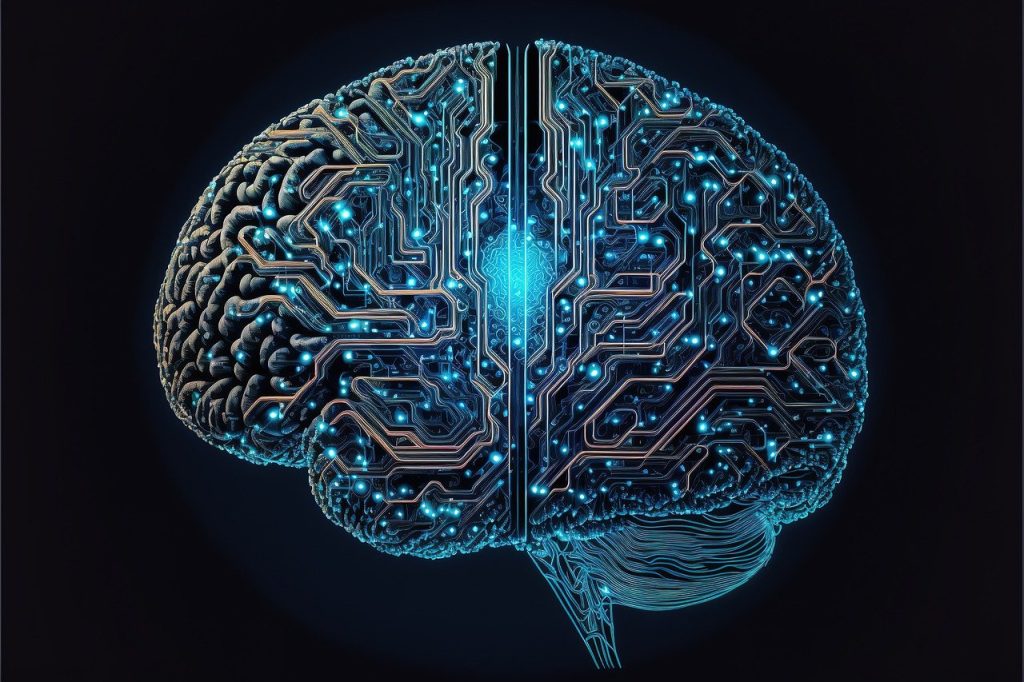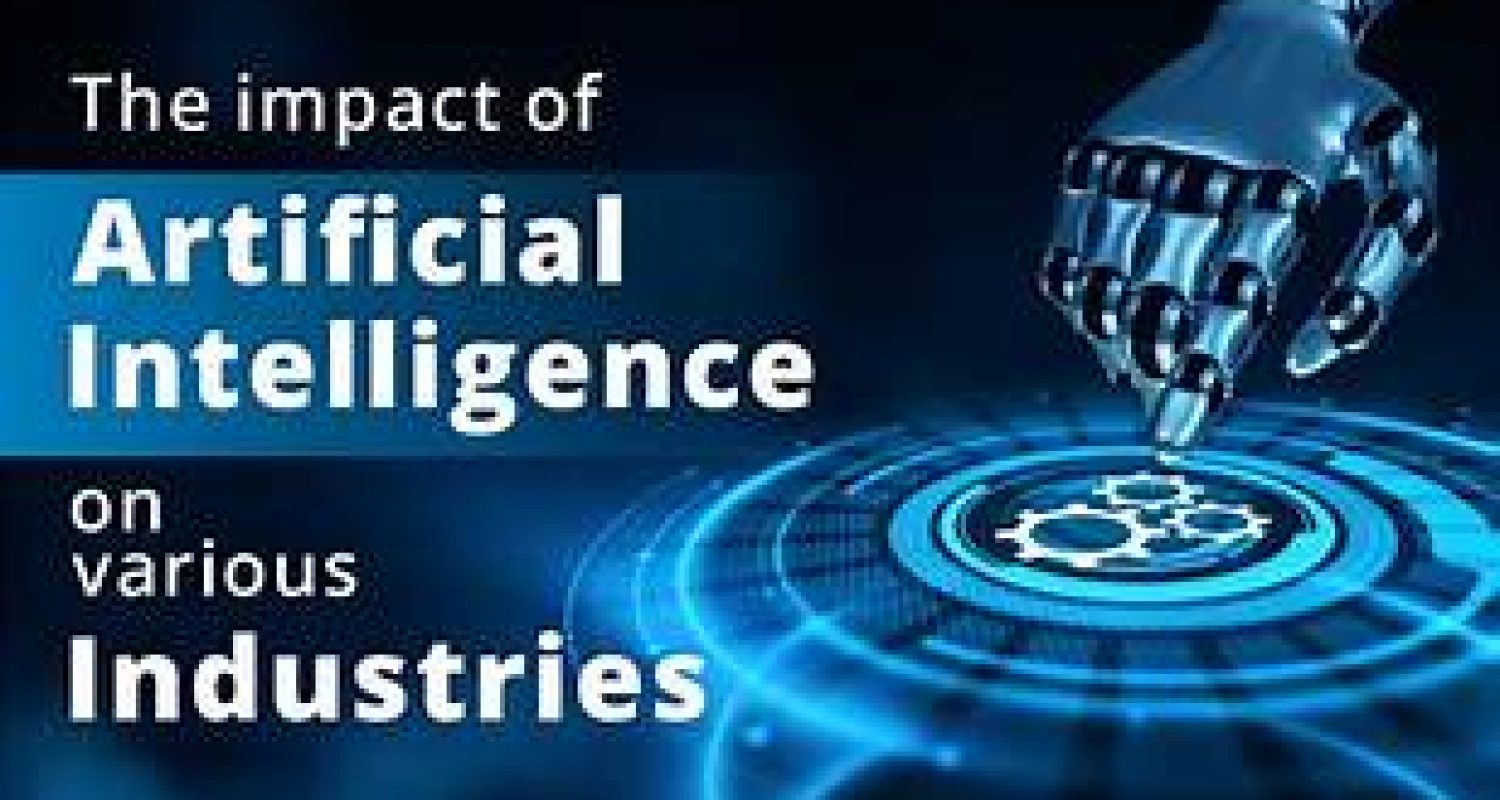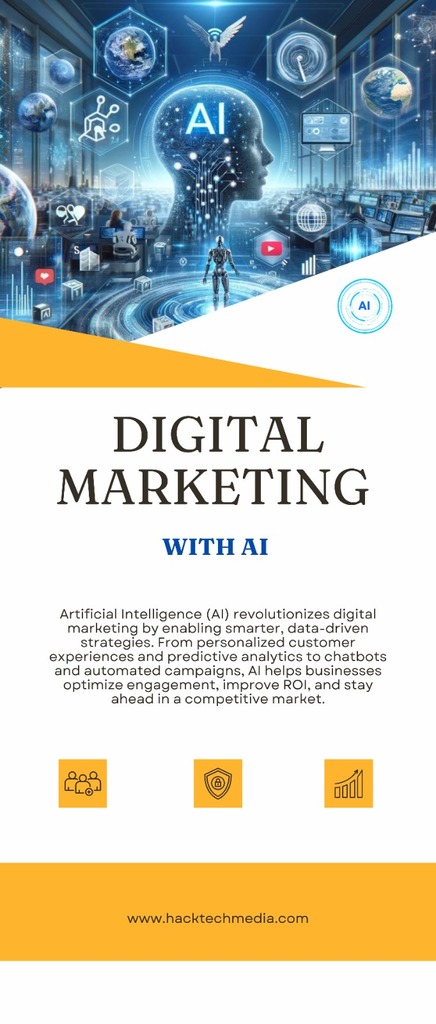
Introduction:
In the rapidly evolving landscape of technology, artificial intelligence (AI) has emerged as a revolutionary force poised to reshape various industries. From healthcare and finance to manufacturing and education, AI is gradually permeating every sector, bringing about unprecedented changes and efficiencies. In this blog, we will explore how AI is predicted to influence different industries in the coming years.
Healthcare:
Artificial intelligence is set to revolutionize healthcare by enhancing diagnostics, treatment planning, and patient care. Machine learning algorithms can analyze vast amounts of medical data to identify patterns and predict disease outcomes. AI-powered robotics assist in surgeries, and virtual health assistants provide personalized health advice. With the integration of AI, healthcare is becoming more efficient, accurate, and patient-centric.
Finance:
In the financial sector, AI is streamlining processes, improving fraud detection, and enhancing customer experiences. AI algorithms analyze market trends, helping investors make informed decisions. Chatbots and virtual assistants provide real-time customer support, while robo-advisors manage investment portfolios. The financial industry is embracing AI to increase efficiency, reduce risks, and create innovative financial products and services.
Manufacturing:
AI is transforming manufacturing by introducing automation, predictive maintenance, and quality control. Smart factories use AI to optimize production processes, monitor equipment health, and minimize downtime. Collaborative robots, or cobots, work alongside human workers to increase productivity and safety. The implementation of AI-driven solutions in manufacturing leads to better resource utilization and improved overall operational efficiency.
Education:
In the field of education, AI is personalizing learning experiences, automating administrative tasks, and providing valuable insights for educators. Intelligent tutoring systems adapt to individual student needs, while automated grading systems save time for teachers. Virtual reality and AI-powered educational tools enhance interactive learning experiences, making education more accessible and engaging.

Retail:
AI is reshaping the retail industry by revolutionizing customer experiences, inventory management, and supply chain logistics. Recommendation engines use machine learning to suggest products based on customer preferences, enhancing personalization. AI-powered chatbots provide instant customer support, and computer vision enables cashier-less stores. The retail landscape is evolving to be more responsive, data-driven, and customer-focused.
Agriculture:
In agriculture, AI is optimizing crop management, predicting harvests, and improving resource efficiency. Precision farming utilizes AI to analyze data from sensors, satellites, and drones, enabling farmers to make informed decisions about irrigation, fertilization, and pest control. AI-driven solutions contribute to sustainable agriculture practices, increasing yields and minimizing environmental impact.
Transportation:
The transportation industry is experiencing a profound transformation with the advent of AI. Autonomous vehicles, powered by AI algorithms, are at the forefront of this change, promising to revolutionize how people and goods move. AI assists in route optimization, traffic management, and predictive maintenance for fleets. Additionally, smart transportation systems leverage AI to enhance safety and reduce congestion, making urban mobility more efficient and sustainable.
Energy:
AI is playing a pivotal role in the energy sector by optimizing resource allocation, improving grid efficiency, and accelerating the transition to renewable energy. Machine learning models analyze data from sensors and smart grids to predict energy demand and optimize distribution. AI also aids in the development of more efficient energy storage solutions, contributing to the global push for cleaner and more sustainable energy sources.
Real Estate:
The real estate industry is undergoing a digital revolution driven by AI. Predictive analytics help in identifying potential property investments, while virtual assistants powered by AI facilitate smoother customer interactions. Machine learning algorithms analyze market trends to predict property values, enabling more informed decision-making for buyers and sellers. AI also streamlines property management processes, enhancing efficiency and reducing operational costs.
Entertainment:
AI is making significant inroads in the entertainment industry, influencing content creation, personalization, and distribution. Streaming platforms use recommendation algorithms to suggest content tailored to individual preferences. AI-driven technologies like deepfake are changing the landscape of film and video production. Additionally, virtual reality and augmented reality experiences are becoming more immersive, creating new possibilities for storytelling and audience engagement.
Legal:
The legal industry is not immune to the impact of AI, with machine learning algorithms being employed for legal research, document review, and contract analysis. AI systems can quickly analyze vast amounts of legal data, improving the efficiency of legal processes. Legal professionals are increasingly using AI tools to identify relevant case law, streamline due diligence, and provide more accurate and timely legal advice.
Conclusion:
As we navigate through the fourth industrial revolution, the influence of artificial intelligence on diverse industries is evident. While the adoption of AI presents numerous opportunities for innovation and efficiency, it also raises ethical considerations, including data privacy, job displacement, and algorithmic bias. Striking a balance between harnessing the potential of AI and addressing its challenges is crucial for ensuring a sustainable and inclusive future across all sectors. The ongoing collaboration between technology experts, policymakers, and industry leaders will be instrumental in shaping a future where AI benefits society as a whole.
#AIRevolution #FutureTech #IndustryTransformation #InnovationInAI #TechTrends #SmartIndustry






